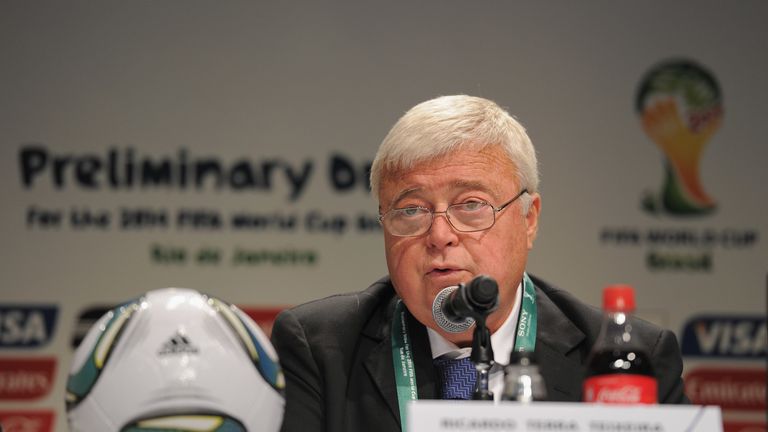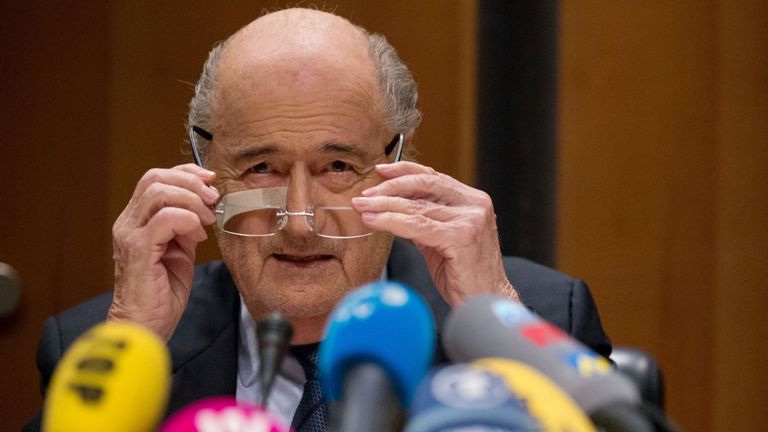FIFA bans Brazilian official Ricardo Teixeira over bribery
Friday 29 November 2019 17:09, UK
FIFA has banned former president of the Brazilian Football Confederation Ricardo Teixeira for life for taking millions of dollars in bribes.
In a judgment by the FIFA ethics committee, Teixeira was found guilty of taking bribes linked to commercial contracts for South American competitions from 2006 to 2012 and was fined 1 million Swiss francs (£775,000).
He resigned from the FIFA executive committee in 2012 ahead of being formally implicated in a decade-old World Cup kickback scandal.
Teixeira became identified with an era of corruption linked to FIFA during the long presidencies of Joao Havelange, his former father-in-law, and Sepp Blatter.
In December 2015, Teixeira was named in a sweeping indictment unsealed by the U.S. Department of Justice that detailed racketeering, wire fraud and money laundering conspiracy charges. He has evaded extradition to the United States, where he kept a home in Florida.
Trending
- Usyk denies Fury in intense world championship rematch
- Highlights: Usyk overcomes Fury in epic heavyweight rematch
- Papers: Arsenal, Man City and Bayern in three-way battle for Olmo
- Big fight reaction: What next for Fury and Usyk after contentious call?
- Fury rages: I was robbed... Usyk got a Christmas gift!
- 'He got a Christmas gift!' | Fury left fuming in post-fight press conference
- 'Uncle Frank is blind!' | Usyk responds to Fury complaints
- Arteta 'really worried' after hamstring injury leaves Saka on crutches
- 'I want my revenge!' Dubois storms ring to demand Usyk rematch
- Fury's FURIOUS backstage reaction after defeat | 'I won by at least three rounds!'
Teixeira cited health reasons seven years ago when he left the executive committee. He also stepped down from organizing the 2014 World Cup in Brazil.
Also in 2012, longstanding allegations were confirmed that Teixeira and Havelange took seven-figure kickbacks from the ISL agency which marketed World Cup broadcasting contracts.
A Swiss supreme court ruling ended years of secrecy about the case. It led FIFA to publish a document detailing a 2010 agreement for Teixeira and Havelange to repay $2.5 million and $500,000, respectively, to close a criminal prosecution.
At a FIFA ethics committee hearing in July, investigators presented evidence from the U.S. federal case that Teixeira took bribes linked to commercial deals for the Copa America, Copa Libertadores and Brazils national cup competition.
The FIFA ruling states Teixeira banked his bribes in Middle East, in far Asia, in Andorra, in Europe, and always with beneficial owners that were very common names in Chinese or in each region, which was impossible to know who it was.
His lawyers countered that Teixeira vehemently denies all charges, which are no more than assumptions made by U.S. attorneys, without any evidence to support the indictment.
FIFA dismissed the defence, noting bribe payments and promises of such payments of several million dollars, money which could otherwise have been invested into the development of football in Brazil and South America.



